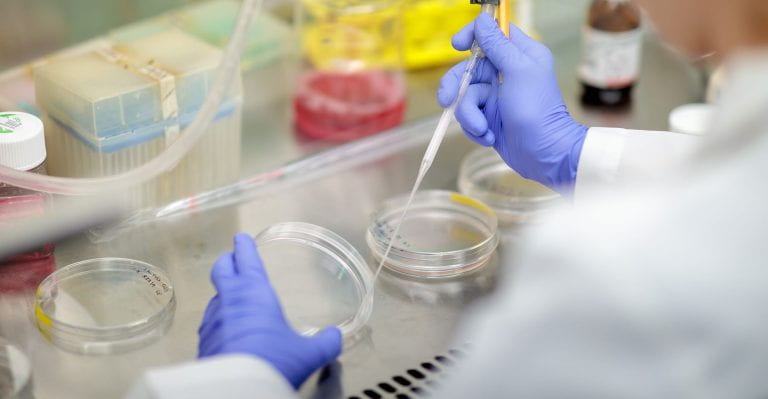The Miller Laboratory is dedicated to understanding neurodegenerative diseases such as amyotrophic lateral sclerosis (ALS) and dementias in order to develop new, effective, and safe treatments. We focus on translational neuroscience, new therapeutic approaches for neurodegenerative diseases, and precision medicine.

ALS Research
The Miller Lab seeks to understand the pathogenesis of ALS with basic studies focused on SOD1, C9ORF72, TBK-1, miRNA, protein misfolding, protein kinetics, and genetic modifiers of disease. We employ RNA-targeted therapeutic strategies, mainly using antisense oligonucleotides.

Dementia Research
The Miller Lab studies how the various isoforms of the protein tau affect neurodegeneration. We employ RNA-targeted therapeutic strategies using antisense oligonucleotides to develop therapies for dementias involving the tau protein as well as for TREM-2.
Latest News
Investigational drug for genetic form of ALS improves disease’s molecular signs (Links to an external site)
Tofersen Phase 3 Drug Results and Use with ALS
Biogen and Ionis report positive topline clinical data on investigational Alzheimer’s disease treatment at AAIC (Links to an external site)
Promising Results for Investigational Treatments for Inherited ALS (Links to an external site)

Join our Team
The WashU Miller Lab in St. Louis welcomes graduate students and postdoctoral researchers to join our team.
Making a Difference
This FDA decision means that people with SOD1 ALS now have access to a treatment that appears to slow down the neurodegenerative disease process and helps preserve motor function. This gives me hope that this could have a positive impact on the quality of life for people living with this rare form of ALS.”
Timothy M. Miller, MD, PhD